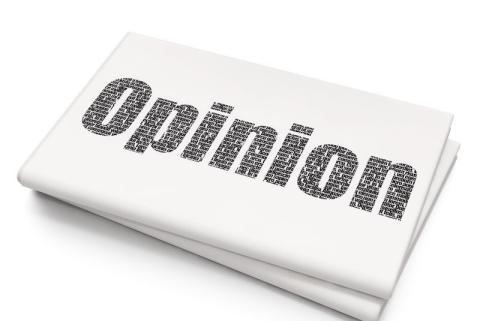
Three years is a long time to wait for democracy. But the interlopers in Bamako think the whole world will be patient with their pedestrian tricks. Some of us won’t be.
The coup leaders in Mali are a bunch of disillusioned military men. There are certain areas to point to in their intents, speeches and body languages which indicates they have failed to understand that the world now abhors military dictatorship. Ever since they catapulted themselves to power on the boisterous waves of anti-president Ibrahim Keita’s civil revolts, colonel Assimi Goita and his boys have not given some of us much hope in the immediate restoration of civil rule in that deeply troubled country. And the excitement that greeted their arrival is gradually dying low to absurd levels of shock and disgust, as a result of their reluctance to vacate the presidential palace in a rush and release all detained political prisoners including the former president and prime minister.
Had they gotten their acts together soon enough, they would have since engendered hope in watchers and mediators in the crisis of power. But on the contrary, they have made us less hopeful that Mali will return to genuine democracy soon. Three years is a long time to wait for democracy. But the interlopers in Bamako think the whole world will be patient with their pedestrian tricks. Some of us won’t be.

It must be a strange mathematical formula which exists in Mali. How did colonel Assimi Goita arrive at the three years transitional program for democracy which is now being proposed? How long would it take to return a banana republic or failed state to ways of the cultured world? The mathematics of elections in Mali is befuddling and difficult to comprehend. But this is not all together strange to some of us. We had warned about the trouble and maradonic dribbles ahead in Mali.
In an earlier commentary, one had remarked prophetically that: “Having tasted some political juices by now, and the splendor which exists in presidential palaces, will the coup leader; colonel Assimi Goita be willing to return to the drudgery and monotony of barracks life? There is little evidence to show that ordinary Malians are not in for a long and tortuous battle with insurgents in the north and the army.”
The unfolding events in Mali are dangerous for the west African sub-region and it may trigger insurrections in other parts of the continent if the world doesn’t tell Goita and his cohorts to return to the barracks at the earlier possible time. The time frame they have elected to return the country to democracy is almost the first tenure in most democracies! What is it that these military brigands intend to do within the time schedule they have told the world to allocate to them? Do they want to invent the political wheel afresh in Bamako? How long does it take to print ballot papers? How long does it take to erect collapsible elections booths?
These questions appear to have obvious answers! Is Mali such a complex nation of political disparities that simple elections can’t be organized in six months, for example? Perhaps, there are political and economic bridges to rebuild and people and interests to pacify. But then, this should not take up all the time, and begin to subject ordinary civilians to the madness that is a military government. Malians deserve better leaders than a bunch of gun-toting young men who sprang from the barracks overnight, and are certain to trample on their civil liberties, and pander to the interests of those keeping them afloat.
Colonel Goita truncated civil rule with few gunshots from a rifle. How come it is going to take the making of a nuclear bomb to enthrone democracy back in the west African country. This must not be tolerated. If the world gives Goita a listening ear, then the same audiences must be prepared to host soldiers in Guinea, Cameroon and elsewhere. Three years is a lot of time to run an already fractured country aground. But they are those who can intervene in Mali without having to exert much political and economic muscles.
France has military presence in Mali, how come she wasn’t able to appeal to former president Kieta to assent to the wishes of the majority of Malians. After all, this is a country whose famous revolution of 1789 has grown into a model of how to unseat unpopular governments, and it’s constantly cited by revolutionaries as an inspiration for change. France has failed Malians and the sub-region. They should have reminded Keita that once the Bastille is raided by the masses, its ownership ceases to be that of the monarchy. Only then would the former president had listened to the voices of masses on the famished streets of Mali. But this wasn’t the case because France had no intention of rescuing the democracy that was sliding towards the rock bottom of anarchy.
Mali needs a new formula radically different from the one propounded by the colonel in Bamako. No matter the elitist background of col. Goita and the public relations gown around the National Committee for the Salvation of the People, the military usurpers of power in Mali will still remain a hard sell in the West on the continent, where democracy is a concept cherished and celebrated. But wait a moment: are we in any way suggesting that the way out of a political crisis is only through the gun?
Anyone who dares to support the CNSP will be suggesting that few shots from egocentric men in camouflages is the solution each time an African country faces a testy political situation. Why hasn’t America had a coup since the anti-Donald Trump and pro- black lives protests began? Why hasn’t there been a coup in France and the UK despite countless civil protests which have taken place over black lives and injustices? Why wasn’t there a coup in South Africa over the statues must fall protests or xenophobic attacks? The answers to these questions should indicate that the likes of Col. Goita and his group are abnormalities in political discourses these days.
One of the greatest drawbacks for President Muhammadu Buhari, in spite of his intent to be a true democrat; is the smudging reference that he truncated democracy in 1983 under President Shehu Shagari. If Buhari was reviled for taking away our civil liberties back then, why is someone or some people now trumpeting the political gatecrashers in Bamako as the alpha and omega to Mali’s crisis of nationhood? That three years gestation for democracy is an incorrect mathematical formula for civility. Let no one say Col. Goita was trained in the West, therefore he understands democracy. On the contrary, he should be told that Africa and democracy have since stopped receiving men like him.
P:S: Steve Ogah is a creative writer whose writings have appeared across print and online platforms.